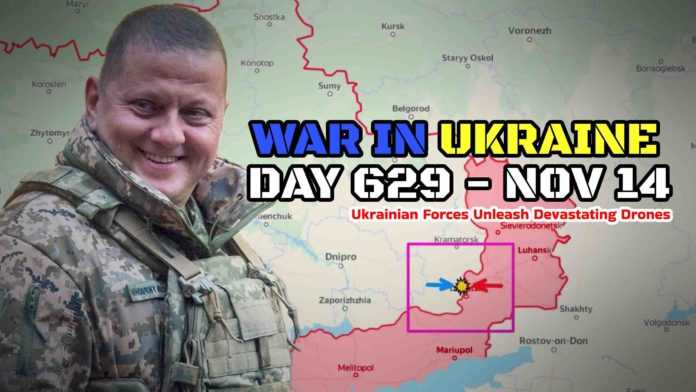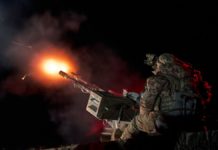In the dynamic theater of Avdiivka, recent updates unfold a gripping narrative of intense clashes as Russian forces navigate tough resistance, shift strategies, and face determined Ukrainian defenses, encompassing battles for Stepove, a critical chemical plant, and the strategic use of advanced drone warfare.
On November 14, there were a lot of updates from the Avdiivka direction – YouTube channel Reporting from Ukraine reports.
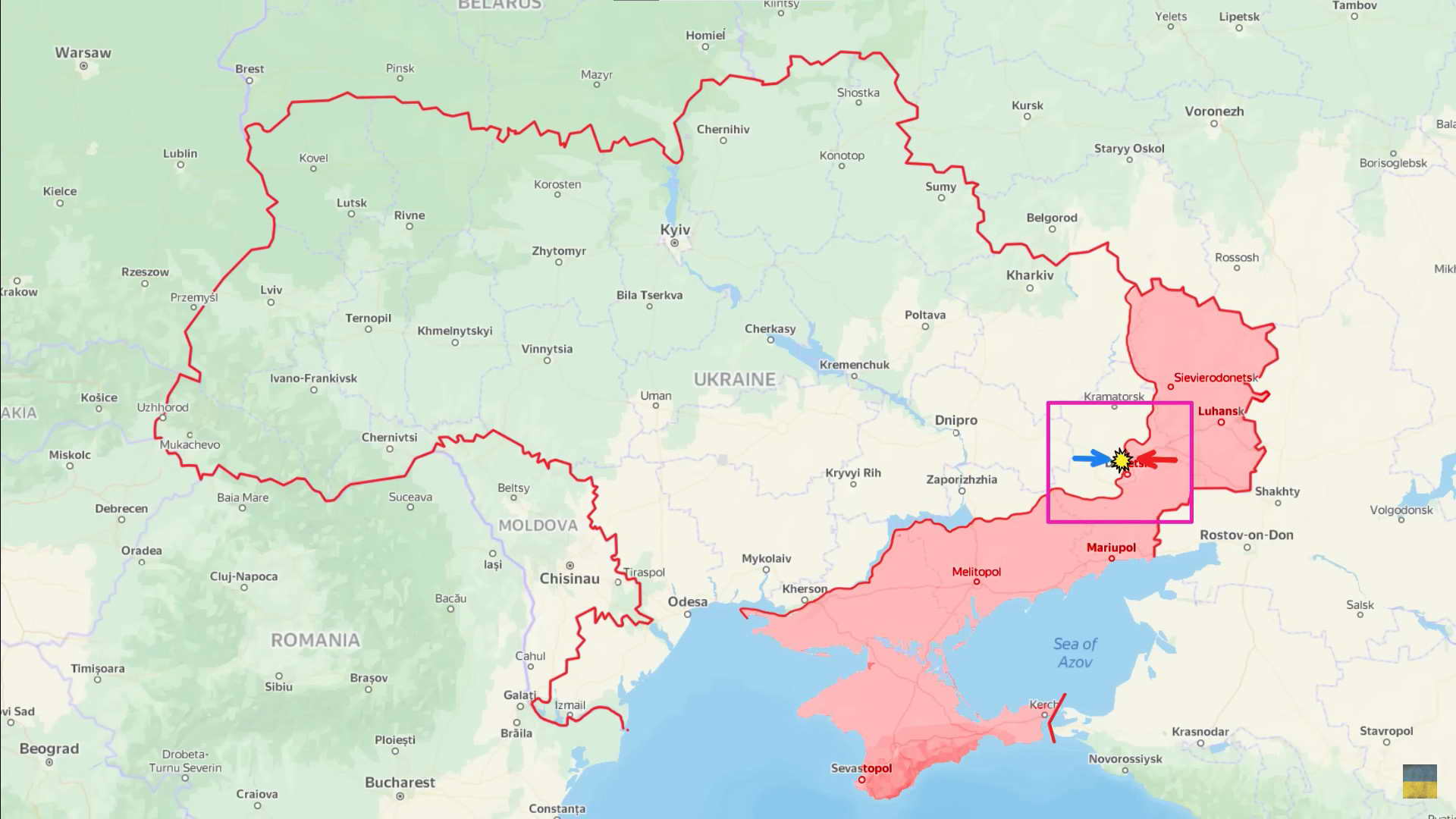

Here, Russian forces faced tough resistance in the northern part of the region, and in an attempt to continue their offensive operation, they started shifting their focus south in hopes of finding a weak spot.
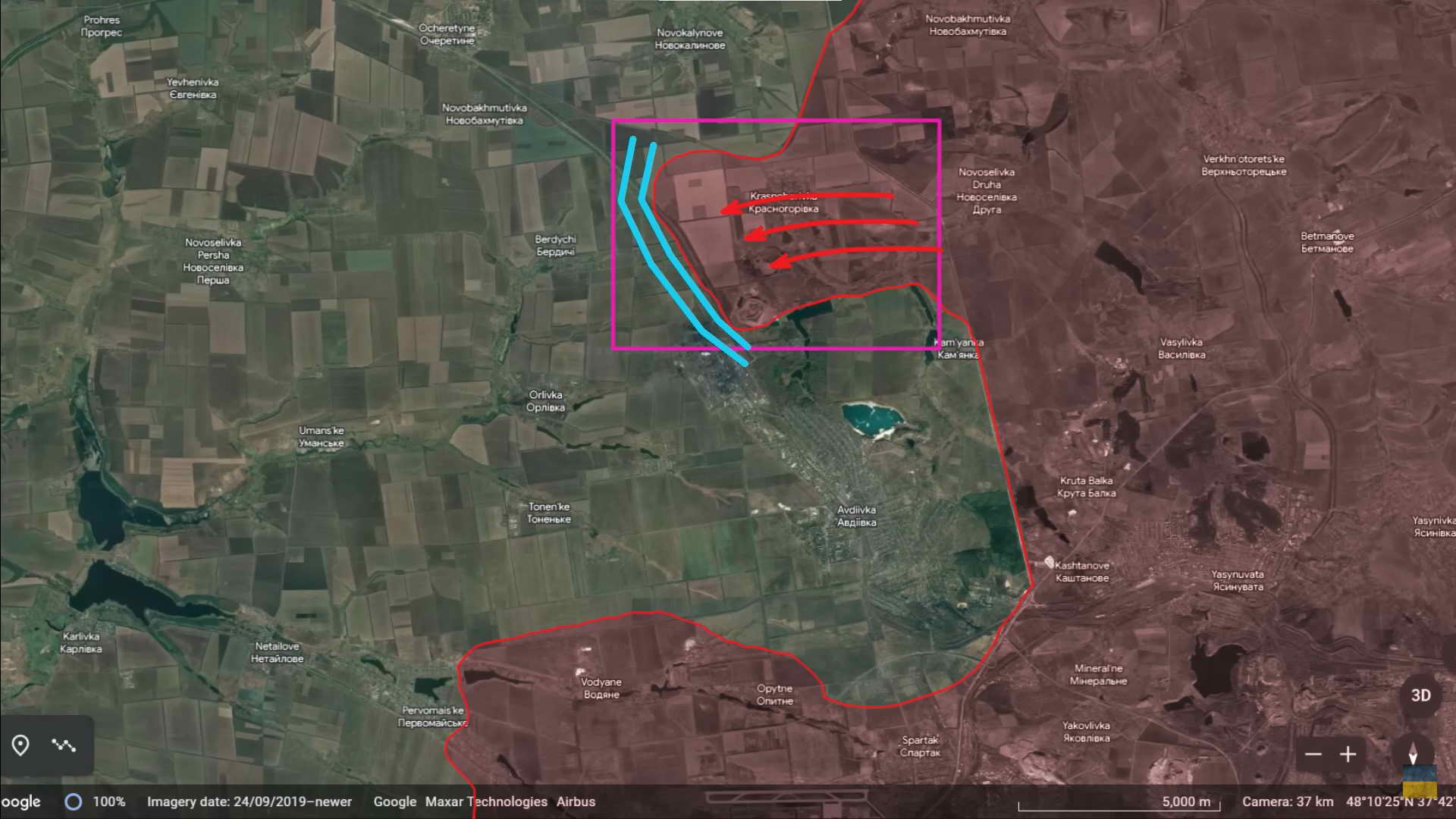

First of all, it was confirmed today that Ukrainian forces indeed managed to rebuff the recent Russian attacks on Stepove. Last time, I told you that Russian forces gradually accumulated a critical amount of force and launched an attack with the goal of establishing control over the settlement. Even though the Russians initially entered the outskirts, the whole assault unit was destroyed. This opened a window of opportunity for Ukrainian forces to conduct a counterattack, as the Russians lost some manpower concentrated along the railways. As a result, the tree lines in front of Stepove became in the gray zone, while Russians stepped back behind the rails to rely on the main strong point located at the intersection of the tree lines.
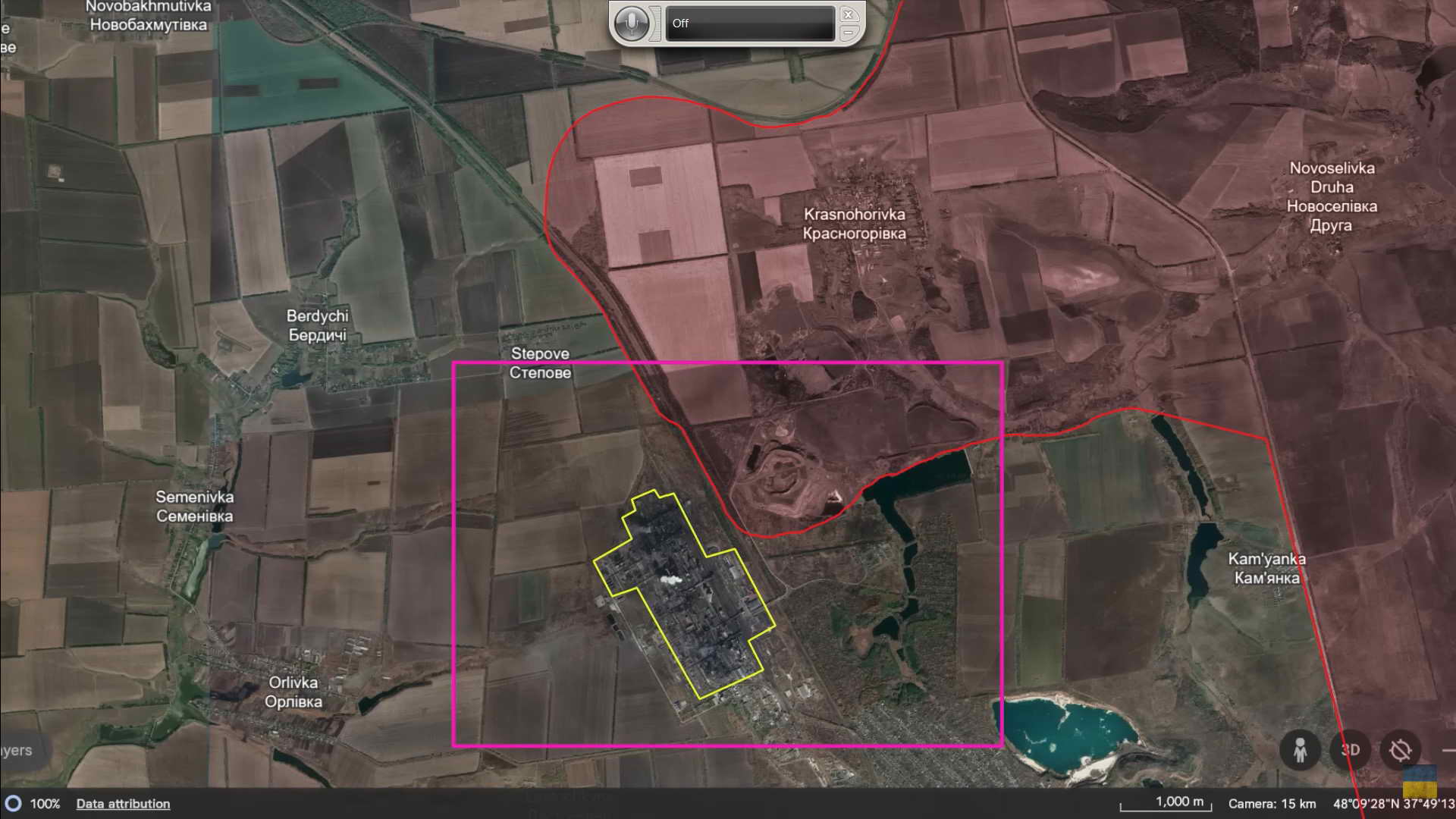

Recently released geolocated footage shows that Ukrainians concentrated their fire precisely on this strong point. Ukrainian drone operators spotted that the Russians had created a new shelter and started launching kamikaze drones. As a result, those Russians who survived were seen running away east of the position. As it turned out, they found the closest destroyed equipment to hide. Ukrainian drone operators identified such shelters and sent kamikaze drones right inside the vehicles. Judging by the video, it is clear that Russians abandoned some of the trenches; however, it is not obvious whether Ukrainians can cross the railways to assume them.
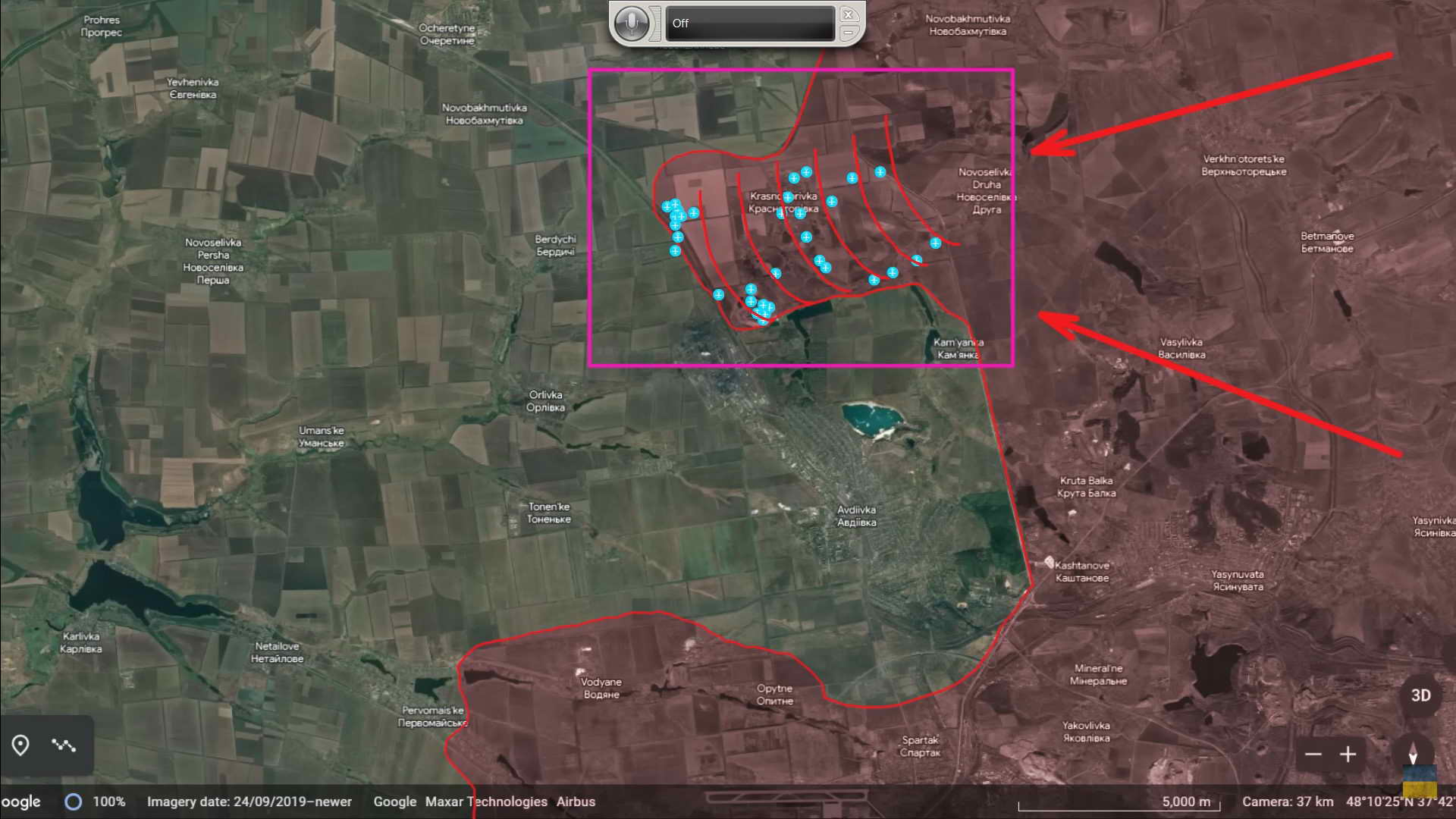

Some Russian sources claimed that Russian forces managed to enter the territory of the chemical plant. After bombing the plant repeatedly with FAB-500 air-dropped bombs, Russian forces reportedly undermined the Ukrainian defense significantly, then used incendiary munitions to immobilize Ukrainians, as it would be dangerous for them to keep it open, and then entered the territory of the plant. Ukrainian fighters challenged these claims and reported that the chemical plant is under tight protection, and Russians were unable to even get close to entering the plant. Instead, the Russians actually lost a fighter jet, the Su-25, during their attempt to conduct an airstrike. In total, over the last month, the Russians have already lost eight aircraft, just above Avdiivka.
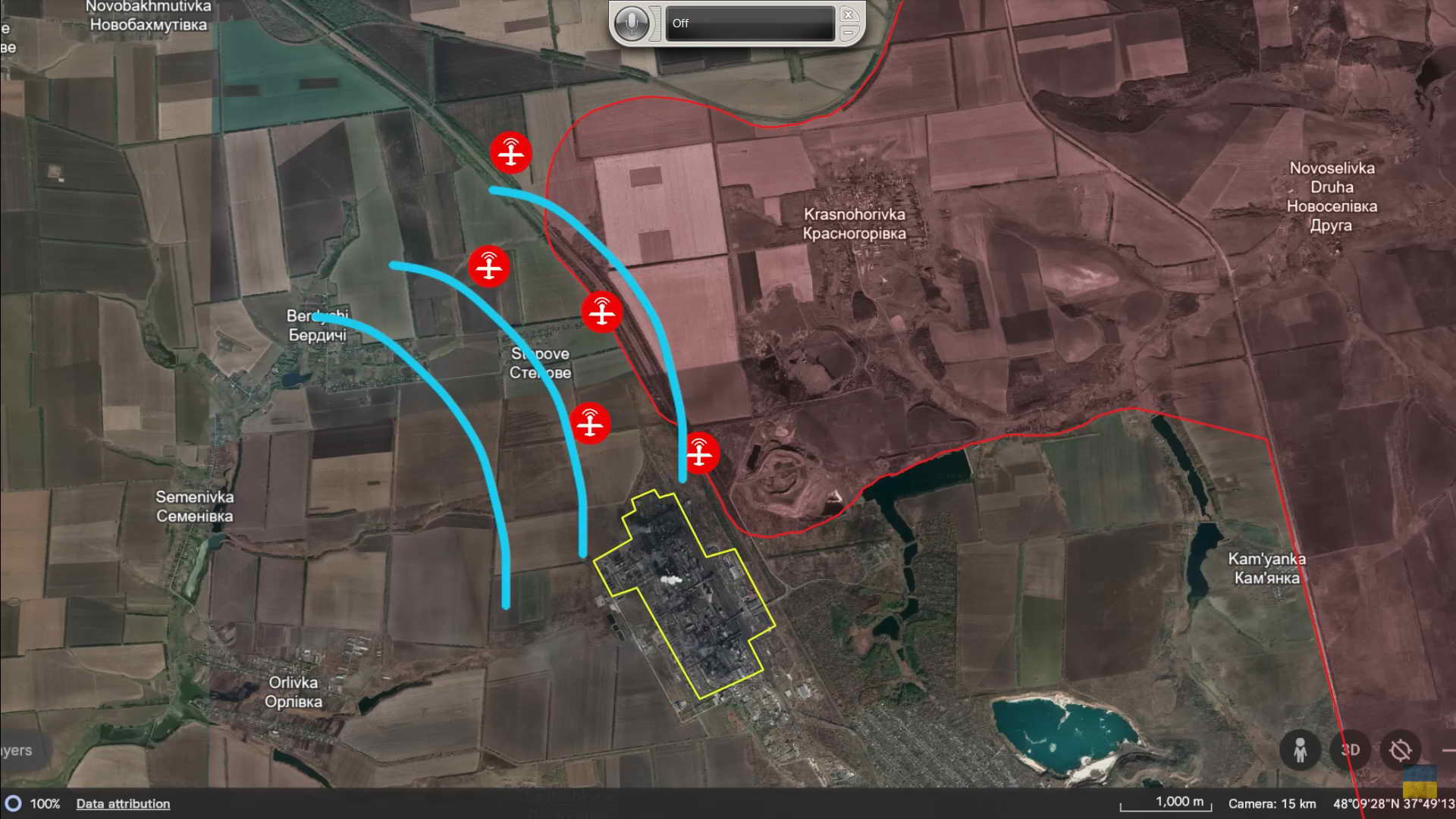

Moreover, Ukrainian fighters released a lot of videos showing how they were targeting Russian forces in front of the chemical plant. A Ukrainian drone operator from the famous one-hundred-tenth brigade showed how their fighters were hunting down Russian equipment and destroying firing points on Terrikon. One video shows the destruction of what looks like an ATGM position, while another one shows the destruction of what looks like an observation post. Fighters from the “Shadow” Assault Drone Detachment were also active in the area and liquidated the enemy manpower that was present on the mount. But the biggest Russian nightmare is heavy octocopters that they are calling “Baba Yaga”. These drones carry much more powerful explosives and can wipe out the whole squad in one blow. That is why Russians are willing to crush their own drones into them in the hopes that they fall. Usually, Russians lose their drones in vain, as the octocopters remain virtually intact.
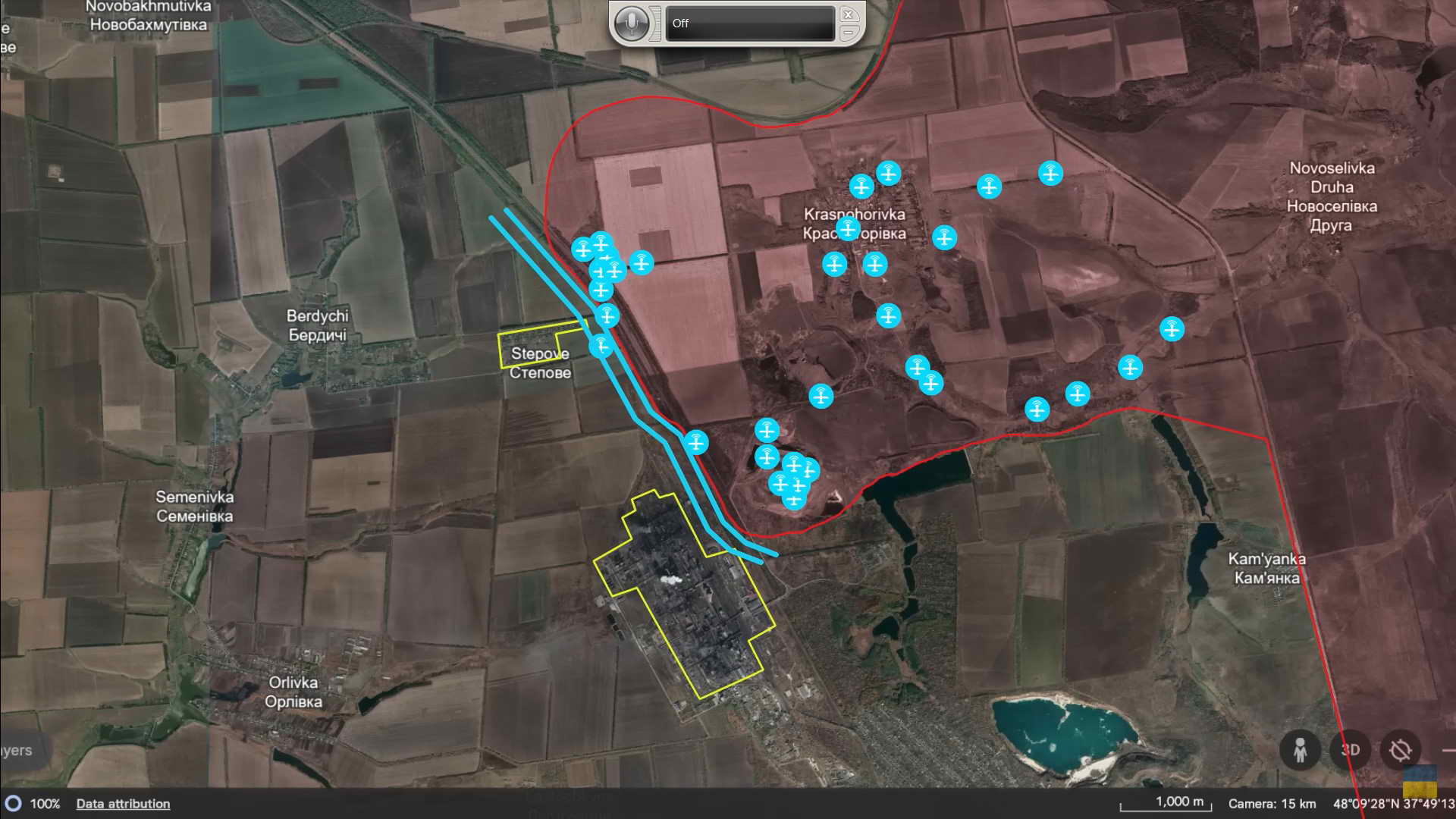

Russian sources complained that Ukrainian drones are making the contact line simply untenable for Russian forces. And this is not surprising, as the Russians cannot protect their forces with electronic warfare systems. The reason why it’s not possible to mitigate the threat from Ukrainian drones is twofold. First of all, the Russian bridgehead around Krasnohorivka is too far from the main Russian bases in Donetsk and Makiivka, so suppressing the drones with electronic warfare systems at such a distance is virtually impossible. Secondly, Ukrainian forces understand that ensuring the freedom of movement for their drone operators is an indispensable part of the defensive operations, which is why Ukrainian special forces are monitoring the area tightly and prioritizing the destruction of Russian electronic warfare systems that get relocated closer to Krasnohorivka.






















